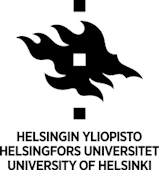Seona Candy is a post-doctoral researcher at the Helsinki Institute of Urban and Regional Studies (Urbaria) at the University of Helsinki in Finland. Originally from Melbourne, Australia, she has research experience and interest in sustainable food and urban systems analysis and transdisciplinary futures research. She uses both quantitiave and qualitative methods, particularly scenario development and modelling. She is currently working with city partners in the Helsinki Capital region to co-develop research projects relating to peri-urban land use issues and their connection with food systems, zero-carbon strategies and resilience.
She has experience in the design and completion of innovative, multi-stakeholder research projects at multiple scales, and across a number of different contexts in developed and developing countries. During her time working with the Victorian Eco-Innovation Lab (VEIL), and later with the Melbourne Sustainable Society Institute (MSSI), she was a research fellow for the ARC Linkage project, titled 'Modelling policy interventions to protect Australia's food security in the face of environmental sustainability challenges’ (LP120100168) and used scenario modelling to link land and resource use with food consumption at a national level. Following this, she was joint chief investigator with the Foodprint Melbourne Project funded by the Lord Mayor's Charitable Foundation. Foodprint Melbourne investigated the capacity and vulnerabilities of Melbourne’s foodbowl both now and in 2050, and developed an integrated policy vision, narrative and framework to inform urban planning and land use policy. Findings from the project influenced two key policy initiatives – the Resilient Melbourne Strategy and the city’s new metropolitan planning strategy, Plan Melbourne 2017-2050 and generated substantial media and public interest. Most recently, she was senior researcher with Visions and Pathways 2040 funded by the Cooperative Research Centre for Low Carbon Living (CRCLCL) - a significant engagement project concerned with working with representatives from industry, government and academia to develop communicable visions of low-carbon future scenarios for Australian cities and identify pathways for their realisation.
She is committed to engaging with audiences inside and outside academia. Alongside her collaboration with project partners across academia, government, industry and community groups, she has authored a number of media articles and was regularly interviewed on radio across Australia in both urban and rural areas about her research. She was also a member of a governmental advisory committee for the development of Australia’s National Food Waste Strategy. She is currently a board member of Commonground Training Resources, a not-for-profit social change organisation in Victoria, Australia.
She has a background in engineering, renewable energy and international development, and completed a PhD at the University of Melbourne, in conjunction with Engineers without Borders, investigating the use of appropriate technology to improve food security and nutrition in remote mountain regions of Nepal. She has previously worked with Co-Design Studio, most recently on a project using participatory design to develop floating vegetable gardens to improve food availability and nutrition for impoverished communities living on Lake Ton Le Sap in Cambodia.
Experience
-
2013–presentResearch Fellow, VEIL, University of Melbourne
Education
-
2013University of Melbourne, PhD
-
2006TU Delft, MSc
-
2003RMIT University, BEng (Hons)
- Helsinki, Finland
- Website
- @seonacandy
- Article Feed
- seona.candy@helsinki.fi
- ORCID
- Joined


